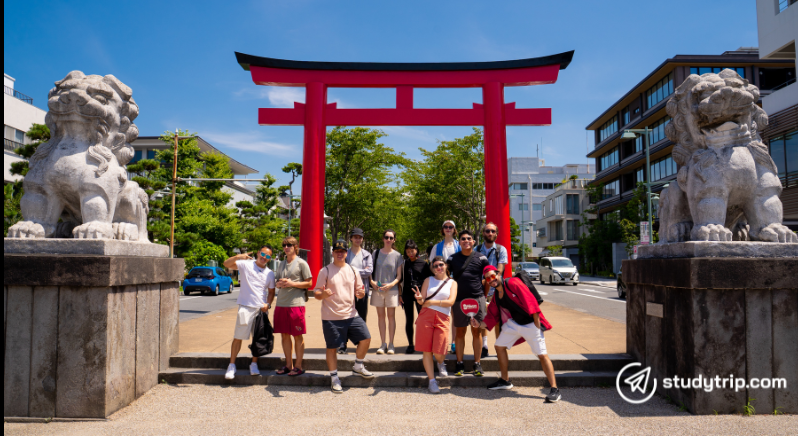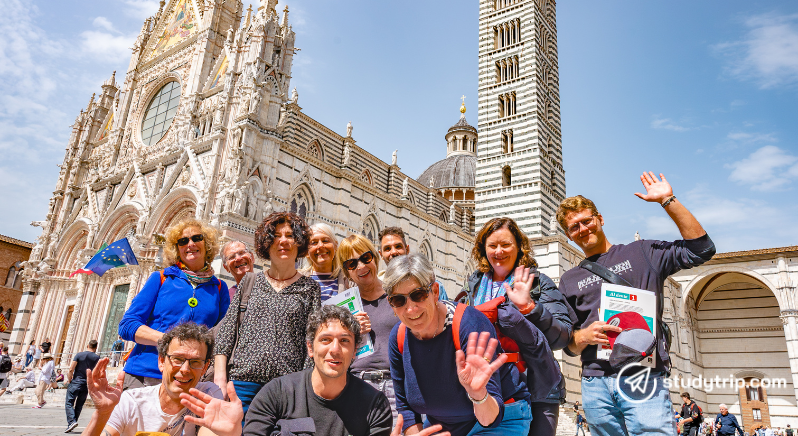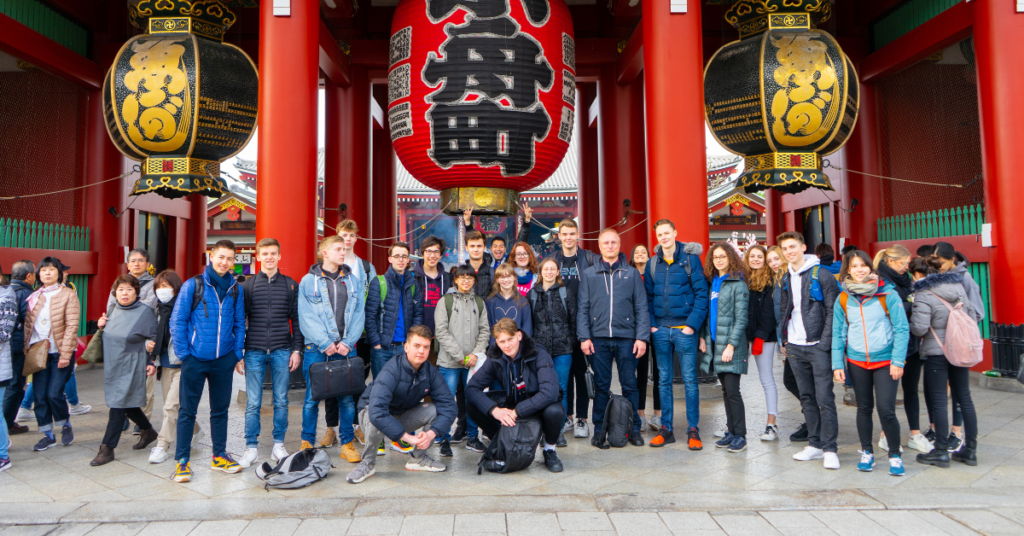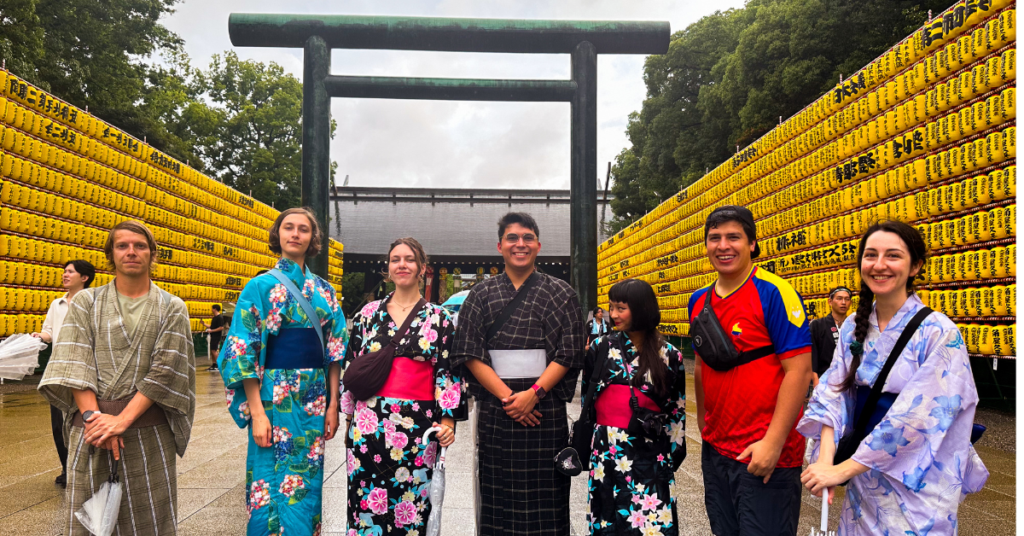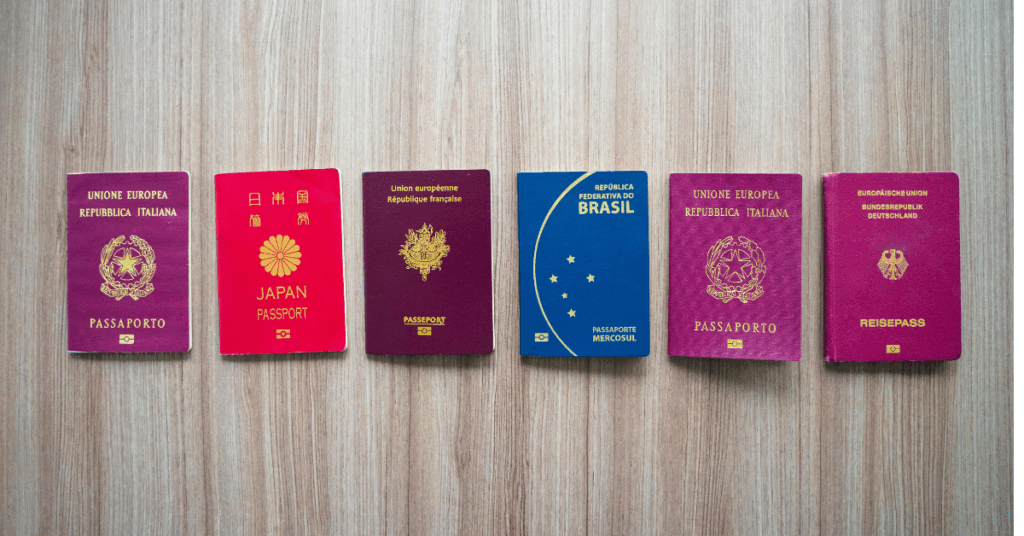Many educators are turning to study abroad programs to give students a unique and transformative experience beyond the classroom. While the opportunity to participate in one of these life-changing trips is meaningful on its own, there are ways to take it further. After more than 15 years of helping educators arrange trips to Italy, France, Spain, Korea, and Japan, we’ve learned what makes a short-term study abroad program truly impactful. Here’s how you can help students get the most out of the experience before, during, and after the trip.
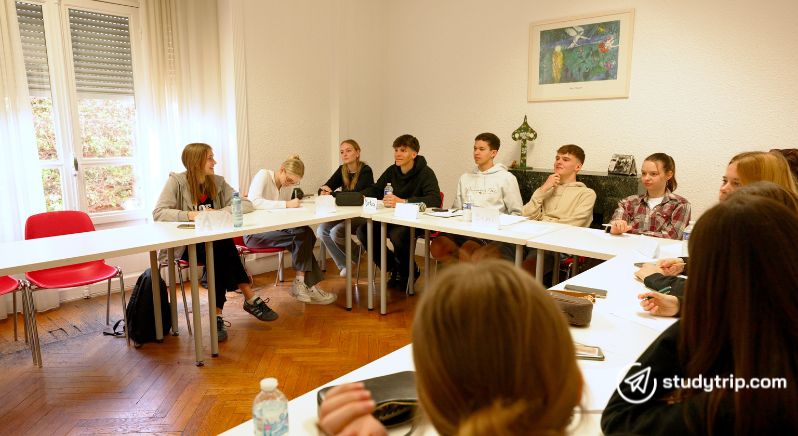
Pre-Departure: Setting Expectations and Goals
A successful short-term study abroad experience starts well before your group boards the plane. Laying the groundwork with clear expectations, cultural preparation, and logistics will help students arrive feeling confident and excited.
Pre-departure Preparation for Students
Set learning objectives
Begin by establishing clear goals for the program. This helps shape students’ mindset and gives their experience focus. For example:
- Ask students to learn hiragana before traveling to Japan
- Encourage them to watch Italian films to improve their listening skills
- Introduce topics related to the host country’s culture or history
Having these objectives in place will deepen their connection to the language and culture once they arrive.
Prepare Students for Cultural Differences
Students are more likely to enjoy cultural differences when they expect them. Preparing them in advance helps avoid discomfort and confusion. For instance:
- If you’re traveling to Korea, explain common etiquette rules such as removing shoes before entering homes or certain restaurants.
- Discuss how greetings, personal space, or public behavior may differ from what they’re used to
- Encourage students to approach differences with curiosity rather than judgment
These small conversations go a long way in creating more open, culturally aware travelers. Encouraging curiosity and preparing students for culture shock will help make the trip smoother for everyone.
Encourage Personal Goal Setting
While group learning goals are important, individual ones add a meaningful personal layer. One way to do this is by having students keep a pre-trip journal. They can use it to set intentions such as:
- Researching seasonal dishes they want to try in France
- Reading a book in Spanish
- Learning useful phrases for the airport in Korea
These small goals build anticipation and make the short-term study abroad experience feel more personal and rewarding.
Logistical Considerations
Managing a student trip abroad comes with many moving parts. From travel documents to in-country coordination, there’s a lot to handle, but you don’t have to do it alone.
At studytrip.com, our trip coordinators will help tailor your short-term study abroad program to your educational goals. We handle the logistics, reservations, and preparations so you can focus on teaching and educational outcomes. Once abroad, our expert tour leaders and staff support you with:
- Navigating public transportation
- Translating during activities
- Ensuring student safety and engagement throughout the program
We’re here to make sure your students have the trip of a lifetime, and that you can enjoy it too.
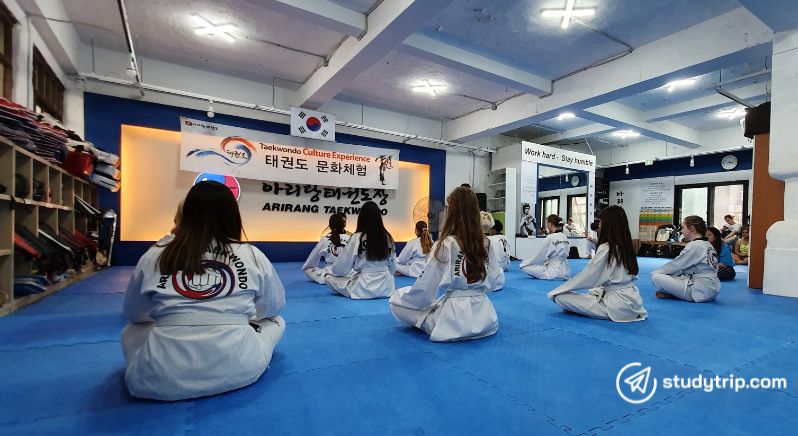
Maximizing On-the-Ground Experience
Activity Pacing and Selection for Maximum Engagement
It’s tempting to fill every hour with activities, but we’ve seen time and again that groups get more out of their trip when there’s a balance between structure and free time for reflection and exploration.
Consider a mix of:
- Must-see landmarks, such as the Louvre in Paris
- Hands-on workshops like a taekwondo class in Seoul
- Curriculum-relevant activities, like a visit to the cutting-edge Miraikan National Museum of Emerging Science and Innovation in Tokyo
- Built-in downtime for personal exploration or group reflection
Your personal trip coordinator can help you design the right pacing for your group based on your desired educational outcomes, grant requirements, or curriculum.
Some of the most memorable moments happen when students connect directly with local people. Consider including:
- A cooking class with locals in Italy
- A high school exchange visit in Japan
- A language partner session in Spain
These types of experiences offer insight into everyday life and create the kinds of connections students remember long after they return home.
Our Tour Leaders play a major role in making sure your students get the most out of their trip. See what one of our Japan tour leaders, Jose, has to say about making the most of your experience on the ground:
“While I strive to share my love of Japan as a mecca of many fields, I see my duty as a guide not only in translating and showing sites, but also in learning alongside our clients and using my own life experiences to help deepen whatever aspect our partners may be exploring—through a cultural lens and my many years of study in various fields, including Japanese society itself. Through this, I aim to make your experience not only more fun and enjoyable, but also rich in knowledge!”
Post-Trip Reflection: Continuing the Journey
The learning doesn’t end when the trip does. The return home is a great opportunity to encourage deeper thinking and integration.
Use Reflection Questions in Class
Try incorporating a discussion or writing session using questions like:
- What was something similar to your culture that you noticed?
- What was something different from your culture?
- Did you have a language barrier moment? How did you handle it?
- Did you use any vocabulary from class while abroad?
- How do people in the host country approach daily life differently?
- What was your favorite moment of connection with someone local?
- What will you miss most now that you’re home?
These conversations help students process their experiences and see how they connect with classroom learning.
Build on the Momentum
The trip can be a springboard for ongoing learning and engagement. Encourage students to:
- Start a longer project inspired by their experience
- Present to classmates about their trip
- Explore internship or volunteer opportunities abroad
You may also find that students become informal ambassadors, encouraging others to join future short-term study abroad programs.
Short-Term Study Abroad Programs Are a Win for Educators
A 2 – 4 week program strikes a great balance between depth and accessibility. It’s long enough to immerse students in a new culture but short enough to fit into a school break. Beyond academic growth, students develop independence, curiosity, and intercultural awareness, skills that last a lifetime.
With thoughtful planning, cultural preparation, and space for reflection, your short-term study abroad program can be a defining moment in your students’ education.
And remember, you don’t have to do it alone. We’re here to support you every step of the way, whether you’re heading to Italy, France, Korea, Spain, or Japan. Contact us to learn how we can help bring your classroom to life through a short-term study abroad program.
